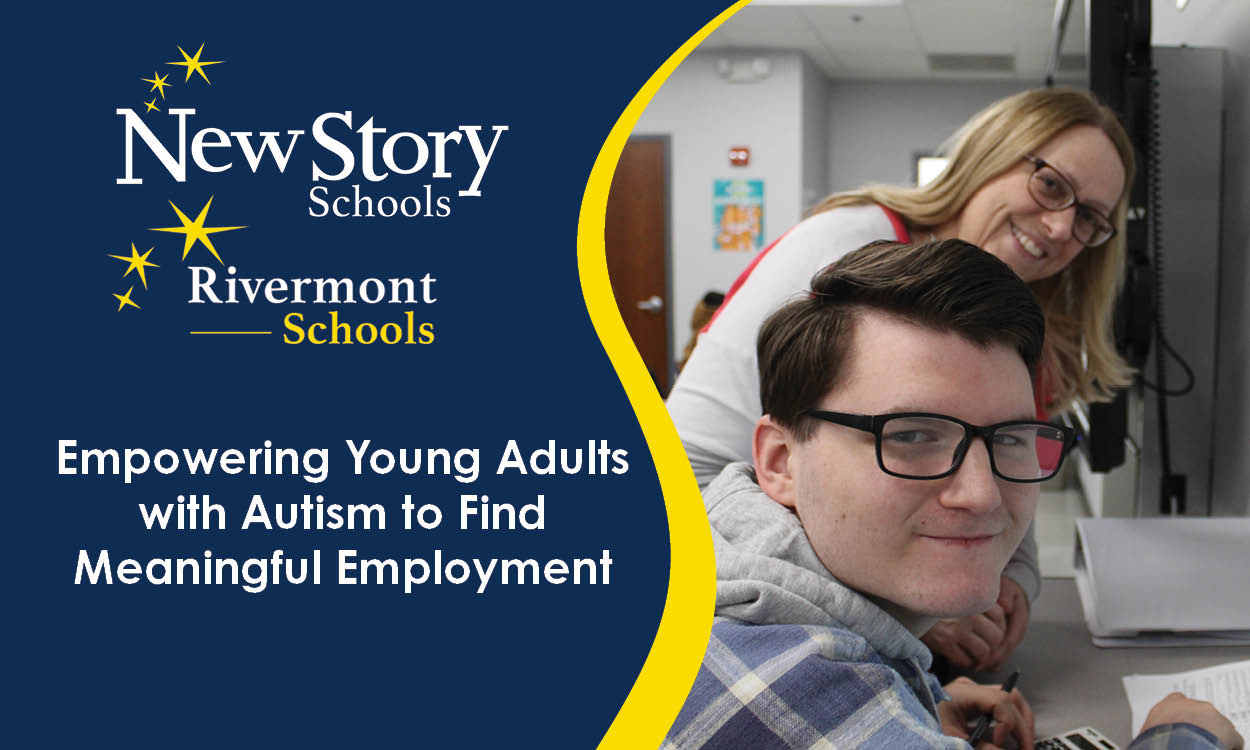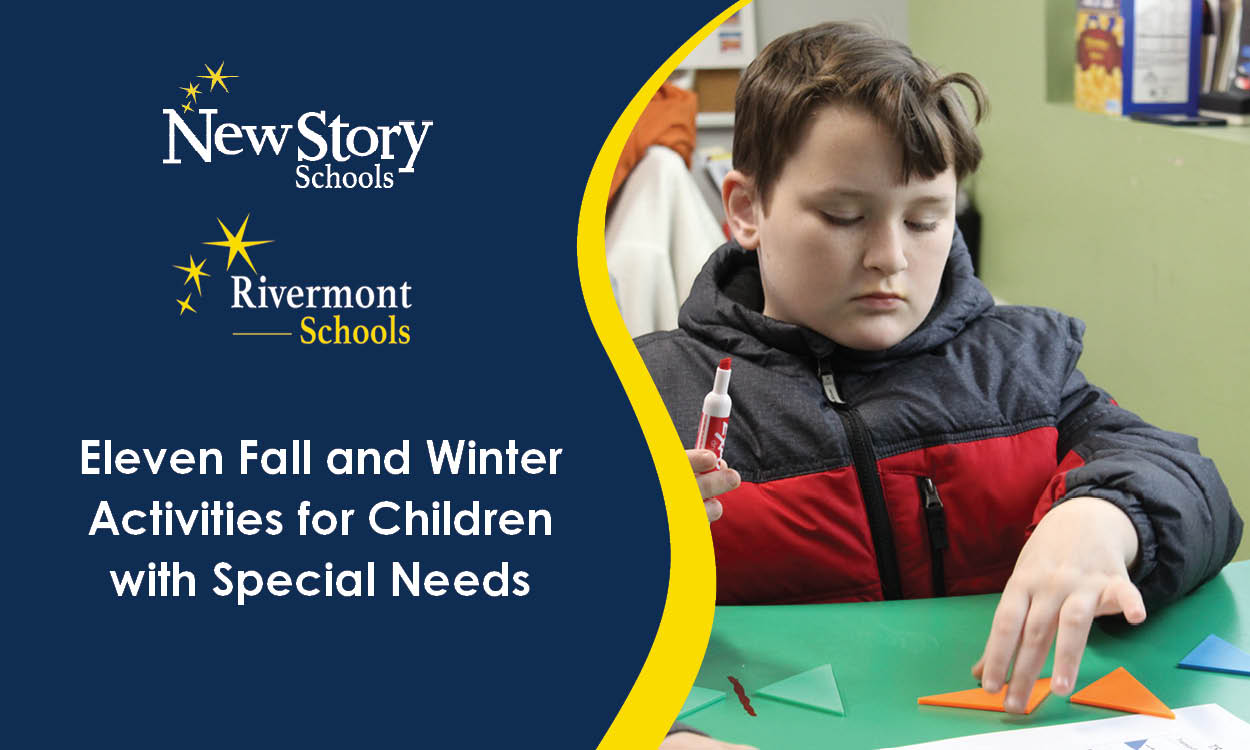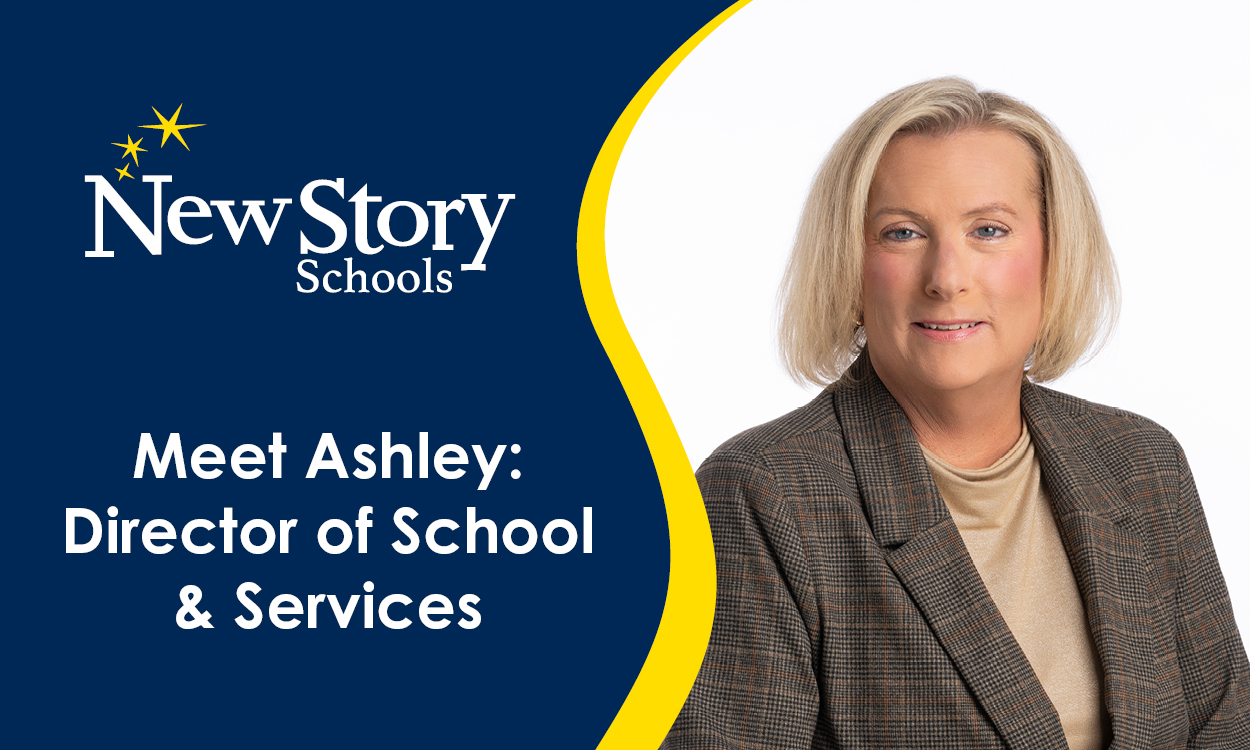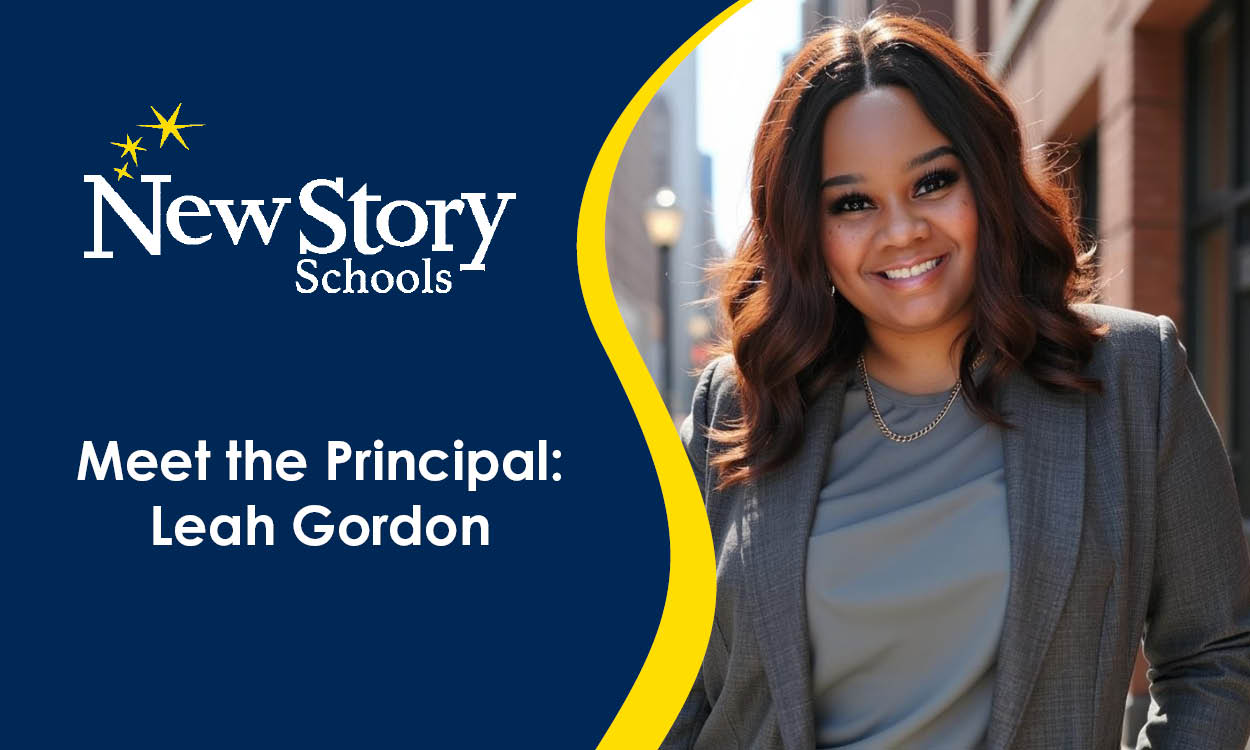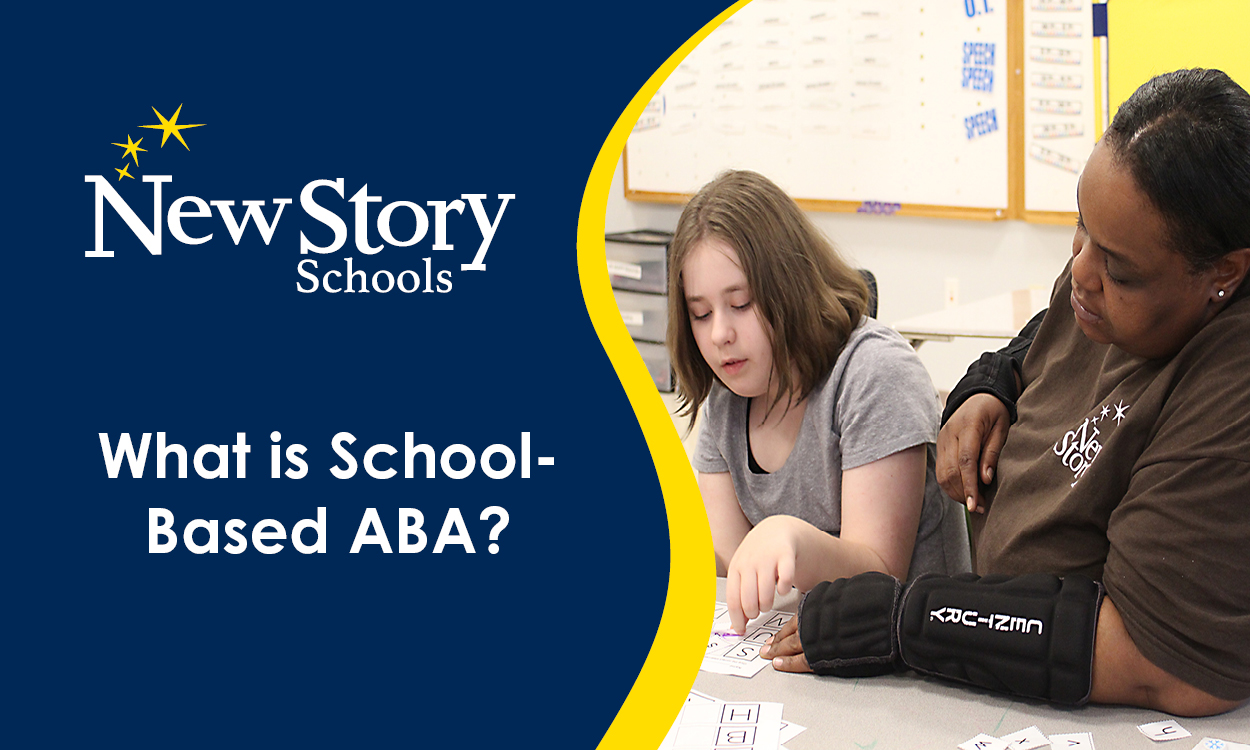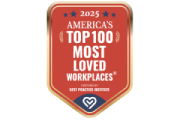A Day in the Life of a Clinical Director - Corey Hudson
Posted: November 07, 2023 | Written By: Drew Delligatti | Category:
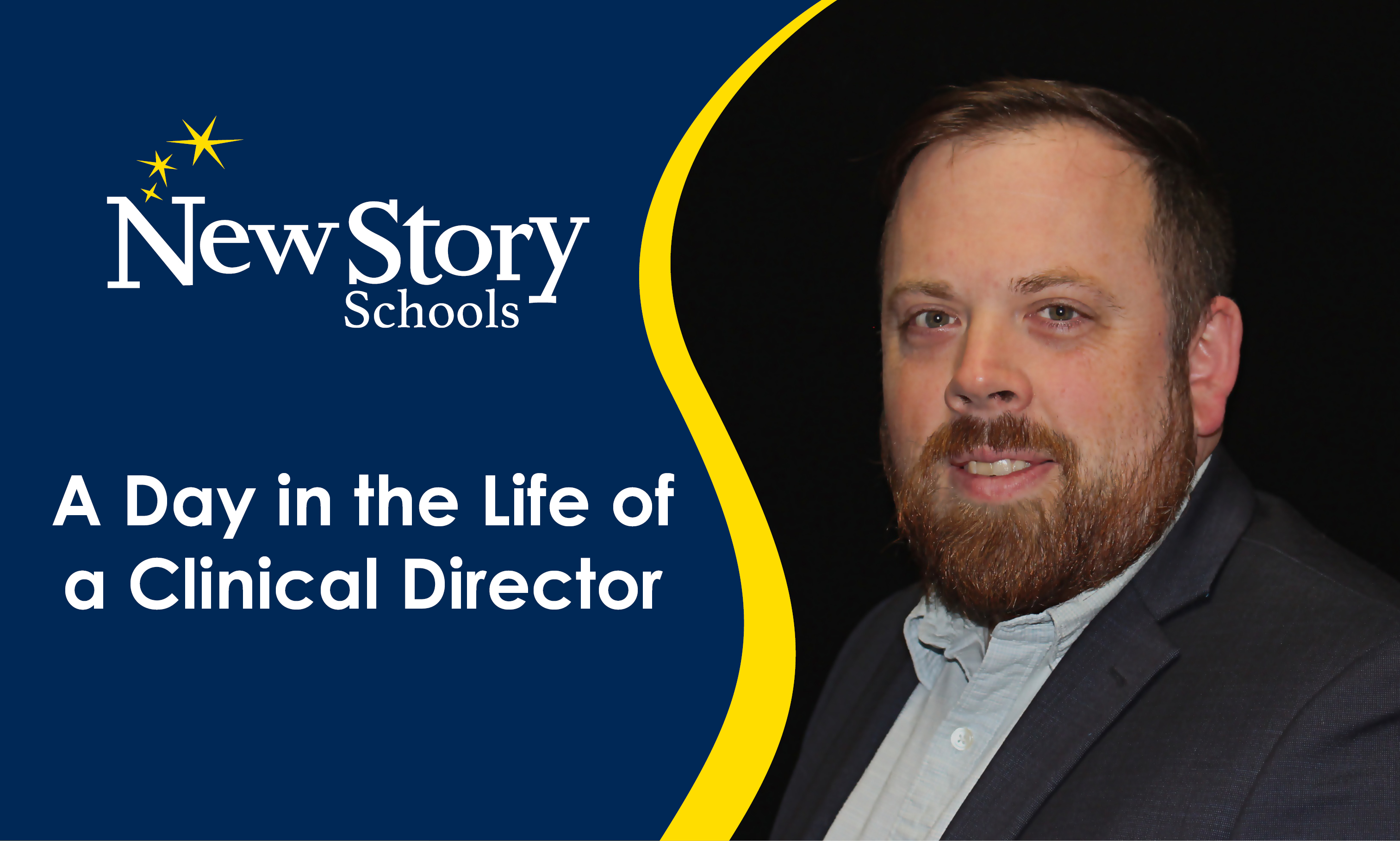
Ever wondered what life as a Clinical Director looks like? We asked Corey Hudson, MS, LBS, BCBA, our Clinical Director at our State College, PA campus about his role, how he got there, and any advice he could give. Take a look at what he said!
What was your career trajectory? How did you end up at New Story Schools?
I graduated from Southern Illinois University – Carbondale with a degree in Forestry. I couldn’t find a job in the forestry industry, so I found one at a residential treatment facility. It was partially outdoors, so it involved things like having kids build their own tents out of trees and things of that nature. So, I just naturally continued down that path. I lived in Florida, North Carolina, and now Pennsylvania. When I got to Pennsylvania, I had to become a Therapeutic Staff Support (TSS) because Pennsylvania requires a lot of paperwork and certification to work in education. Eventually I became a Behavior Specialist and now I am a Clinical Director. When I was studying forestry, I always told myself, “I’ll never work in an office.” Now here I am!
What is your day-to-day role like as a Clinical Director?
It’s half behavior analyst and half leader. A lot of my day is making sure that our program runs smoothly. We want to make sure we are providing the best options for our students each day to make choices and learn from the consequences of those choices, whether it is good or bad. Because I like to explain to students that, no matter what choice you make, there’s going to be pros and cons to each decision. It’s whether or not they’re the consequences that you want or not. When I walk into work in the morning, I touch base with my clinical team, then I tend to circle around and check with the teachers, go outside to kick a ball with some of the students and then make similar rounds throughout the day. I also spend part of my day looking up different intervention strategies to see how we can further help our students. Each day is unique and fun. The only cookie cutter days of my life are Saturday and Sunday.
What is something you look forward to everyday?
I get the opportunity to make a difference every day. Some people do the same things at work every day, but when I get up at 5:00 in the morning, I have no idea what my day is bringing. Almost anything can happen. The days fly by because I am always up to something. Being able to affect change for the better for someone is what keeps me going. It’s what I’m here for.
What makes our State College, PA campus special?
We have staff that are here for the right reasons. They want to help the students out. Our staff members make sacrifices in their personal time, and sometimes even their personal finances, to make ensure things are going in the right direction. For example, sometimes when it is one of our student’s birthdays, a staff member may have a cake delivered. No one is here for their own ego. Every day begins with almost all of our staff at the front door welcoming students. Everything is all about the students, as it should be.
What makes you proud of the work you do?
The main thing is being able to sign off on their diploma when a student is returning to district. It’s a very powerful thing to sign off on the student’s journey. I actually got to experience it on my first day on the job. We had a student go through Extended School Year (ESY) and then transition back to district. I felt it was a great honor to sign his diploma. I love going around and giving the students fist bumps and seeing their eyes expand, because you know how important those things are to them. I love seeing them get excited. In fact, I only get scared if the hallways here are quiet.
Is there any advice you could give to someone who is also looking to pursue a career in special education?
Always allow your mind to be open to different approaches. What they say in textbooks might not always work in real life. There are variables in the real world that we can’t see or predict. So, you have to be able to adapt to those. You have your perfect scenarios, then there is the real world. You need to have an open mind and look for unique approaches to unique situations. That’s the biggest thing I’ve had to come to terms with in the 20 years I’ve been doing this. Nothing ever goes 100% the way you plan. It’s how you adapt to those curveballs and keep moving forward. It is crucial to your success and whether or not you will just be “good at your job” or actually making a difference in someone’s life.
Want to be notified of new articles and resources from New Story Schools? Submit your email and opt into our newsletter!


